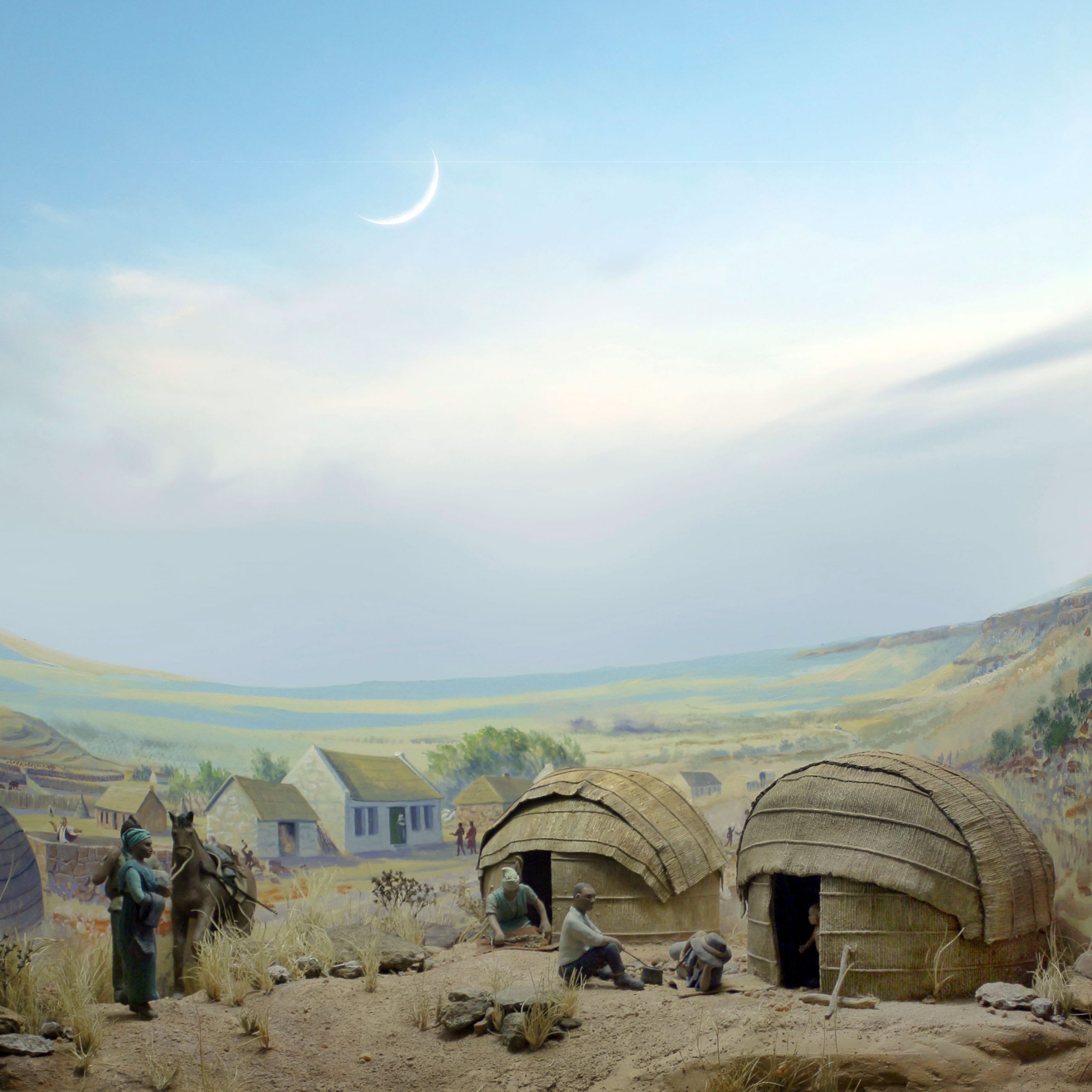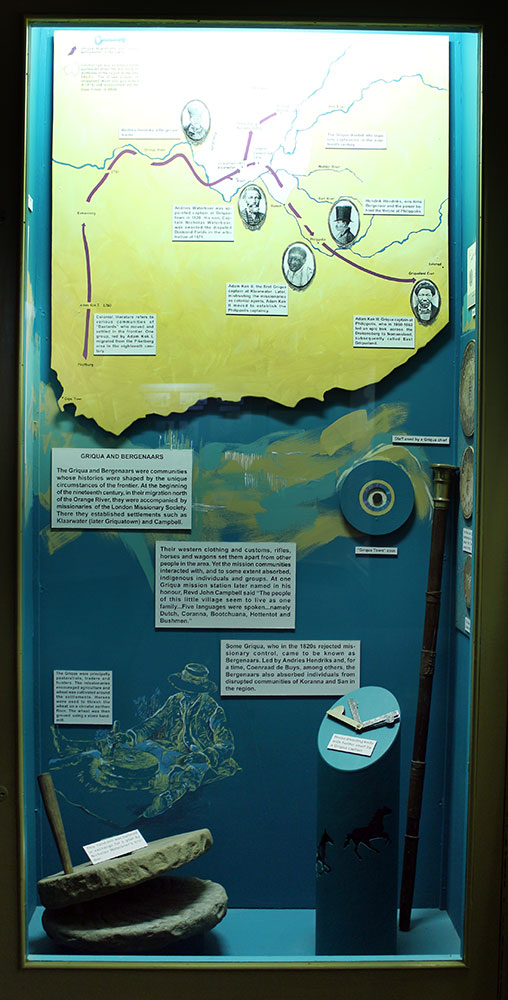Griqua
- Griqua
- https://museumsnc.co.za/new_site/wp-content/uploads/2021/04/griekwa-thumb.jpg
- ALL CATEGORIES
- https://museumsnc.co.za/new_site/wp-content/uploads/2021/04/Griekwa-Voiceover.mp3
“Bastard Hottentots” was one of the terms applied to people of mixed Khoisan, slave and European descent in the frontier zone. The Kok and Berends families attracted a following who migrated through Namaqualand and up the Orange River.
Here they called themselves Griqua, from a name of Cape Khoikhoi members of their group. Other “Bastards” remained south of the Orange River, settling at mission stations in the Karoo. Some later moved northwards beyond the encroaching colony.
The histories of the Griqua and Bergenaars were shaped by the unique circumstances of the frontier. Their settlements at Klaarwater (later Griquatown) and Campbell were established in the company of missionaries; and their western clothing and customs, rifles, horses and wagons set them apart from other people in the area. They entered agreements with the Cape government to regulate trade between themselves and “neighbouring tribes beyond the Northern Frontier.” Yet these mission communities interacted with, and to some extent absorbed, indigenous individuals and groups. At one Griqua mission station later named in his honour, the reverend John Campbell said “The people of this little village seem to live as one family…Five languages were spoken…namely Dutch, Coranna, Bootchuana, Hottentot and Bushmen.”
Under missionary guidance the Griqua adopted a formal constitution in 1813, and “Griqua Town” coins were struck in England a year later, which bore an image of a dove, the emblem of the London Missionary Society.


Some Griqua, who in the 1820s rejected missionary control, came to be known as Bergenaars. Led by Andries Hendriks and, for a time, Coenraad de Buys, among others, the Bergenaars also absorbed individuals from disrupted communities of Koranna and San in the region.
Adam Kok II was the first Griqua captain at Klaarwater. Later, mistrusting the missionaries as colonial agents, he led a break-away faction and moved to establish the Philippolis captaincy. In his place, Andries Waterboer was appointed captain at Griquatown in 1820. His son, Captain Nicholas Waterboer, was awarded the disputed Diamond Fields in the arbitration of 1871. Colonial rule had been extended north eastwards after the discovery of diamonds in the region in the late 1860s. The Crown Colony of Griqualand West was proclaimed in 1874, and incorporated into the Cape Colony in 1880. Adam Kok III, was the Griqua captain at Philippolis, who in 1860-1863 led an epic trek across the Drarkensberg to Nomansland, subsequently called East Griqualand.
The Griqua were principally pastoralists, traders and hunters. The missionaries encouraged agriculture, and wheat was cultivated around the settlements.
